Fighting dirty in the battle for superhero supremacy.
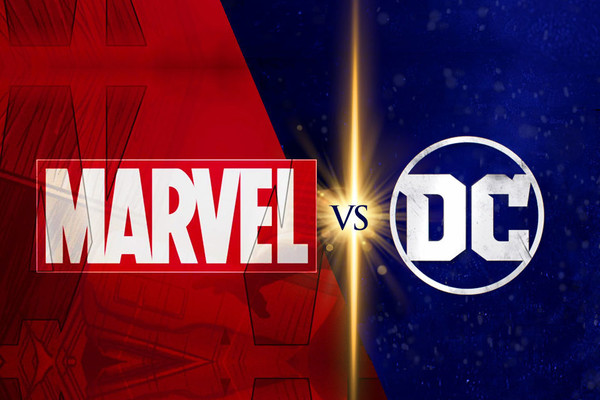
wiki
Marvel is like Coca-Cola and DC is Pepsi. Most consumers prefer one or the other and the brands have been locked in a two-way battle for market dominance for as long as anyone can remember. For the most part, their rivalry has been friendly and professional, with each camp acknowledging that healthy competition is a good thing.
Today, in an age where the comic book giants' characters inhabit cinematic universes and hit TV shows, the battle for superhero supremacy has taken on a new level of prevalence, yet it remains largely amicable on both sides of the fence.
It was only recently that Marvel Studios head honcho Kevin Feige downplayed the rivalry's very existence, pointing out that successful DC movies only strengthen the superhero genre as a whole. Guardians of the Galaxy director James Gunn has expressed similar sentiments, as has DC's chief creative officer Geoff Johns.
But like most great rivalries, Marvel versus DC hasn't always been underpinned by mutual respect. There are times when it has turned downright ugly, shots were fired in each direction and both sides resorted to dirty tactics to stick it to their competitors.
8. The Captain Marvel Lawsuit
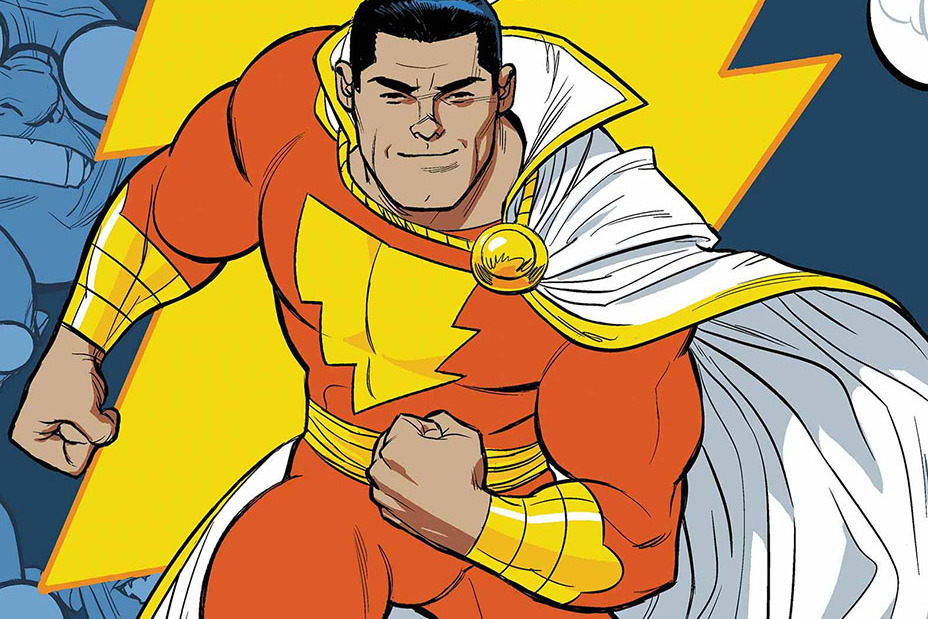
DC
It's no secret that both DC and Marvel have a character on their books who goes by the name of Captain Marvel. Indeed, these superheroes are set to go head to head at the box office next year, with their cinematic debuts falling just weeks apart.
How they came to share the same moniker is a long story paved with lawsuits, which dates back to the days when DC was known as National Comics Publications. Back then, it was embroiled in a legal spat with a third publisher, Fawcett Publications.
The now-defunct Fawcett was the original home of Captain Marvel (the current DC version) and his comics were actually the bestselling superhero titles of the 1940s, outperforming even Superman. It was, however, the character's perceived physical resemblance to Superman which put the two publishers on a collision course.
One of the longest and most drawn-out court battles in the history of the industry ensued, and when it came to a head, Fawcett was forced to cease publishing Captain Marvel comics from 1953 onwards. DC snapped up the rights to the hero and his supporting cast, and integrated them into its mainline superhero universe.
It wasn't until 1991 that DC had crossed all of the Ts and dotted the lower-case Js on its Marvel Family deal, and by this point, Marvel Comics had gotten its own Captain Marvel off the ground. This created a huge problem for DC, as it meant they were unable to promote the character they had licensed under his true name.
This forced the publisher to market its Captain Marvel comics under the banner of Shazam, a name derived from his transformational cry. Former DC publisher Carmine Infantino attempted to take the name back in 1974 by adding the subtitle 'The Original Captain Marvel' to Shazam, but the House of M hit him with a cease and desist order. The subtitle was then changed to 'The World’s Mightiest Mortal'.
To set the record straight, DC's Captain Marvel is the original, but the firm cannot claim to have originally created the character.
7. Stan Lee Slams DC From His Soapbox
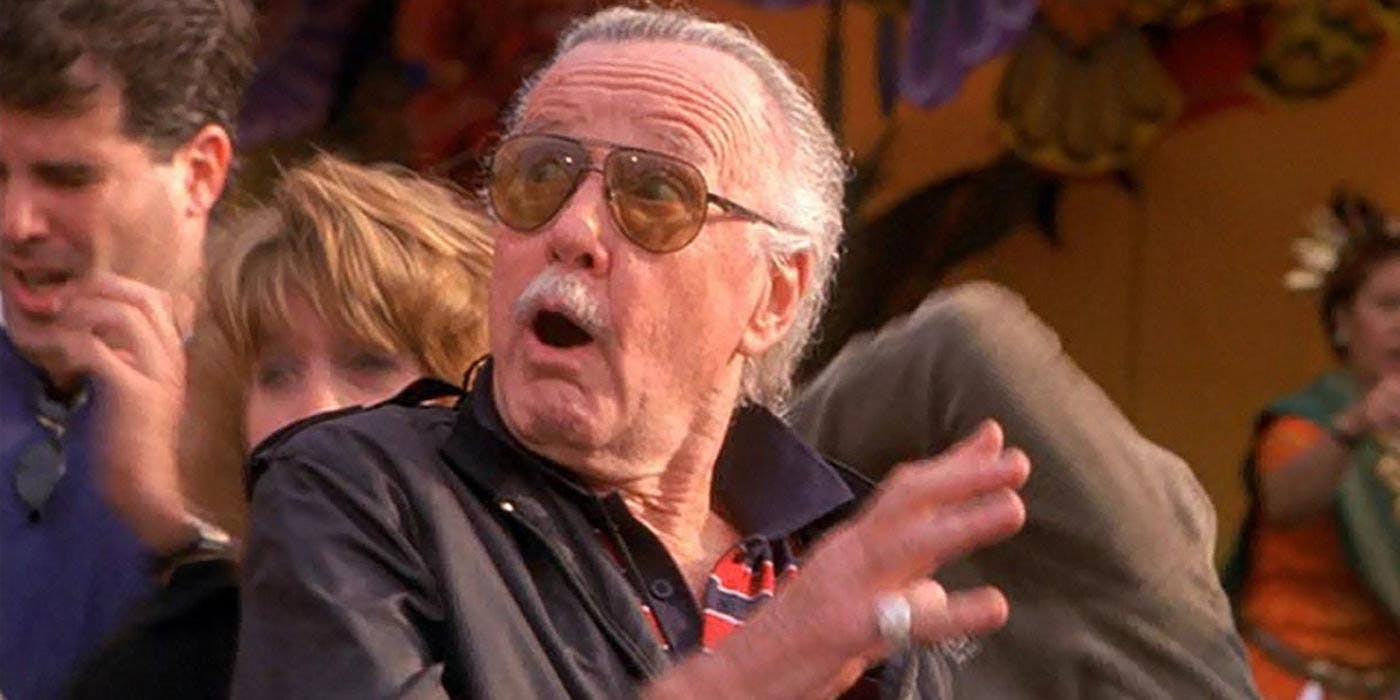
Marvel
Marvel legend Stan Lee honed the publisher's voice via the Bullpen Bulletins section of its comics during his tenure as editor, and his Stan's Soapbox column soon became the most popular part of this information page.
The Spider-Man co-creator used his Soapbox to keep fans in the loop about Marvel's upcoming plans and muse about happenings in the comics industry. It wasn't long before it became a place where he could take a few cheeky swipes at DC, too.
Lee's jibes were often playful and veiled, but there are times when he overstepped the mark, including one occasion when he insinuated that Marvel comics are for intelligent people while their competitors cater for quite the opposite. He also accused rival publishers of trying to emulate his firm on more than one occasion.
"We don't resent competition - indeed, we welcome it. But we do resent shabby, carelessly produced, badly-written and drawn, conscienceless IMITATIONS of our Marvel mags, imitations which are callously lacking in quality, and which are produced for the sole purpose of making a fast profit."
DC's response was to poke fun at Lee's "copying" claims by introducing a shape-shifting character called Chameleon Boy in Adventure Comics #350, who cheekily transformed himself into a man-spider hybrid before winking wryly at the reader.
This kicked off a chain reaction of back-and-forth satire, and soon afterwards, the two publishers were mercilessly lampooning each other. Marvel parodied Batman and Robin, among other DC characters (and its own heroes) in Not Brand Echh, while DC returned fire in tongue-in-cheek titles such as Fantastic Four skit Inferior Five.
Most of the time, it was lighthearted and all in good fun, but there were times when both parties - and Lee, in particular - may have crossed a line.
6. Jack Kirby's Brutal Stan Lee Parody
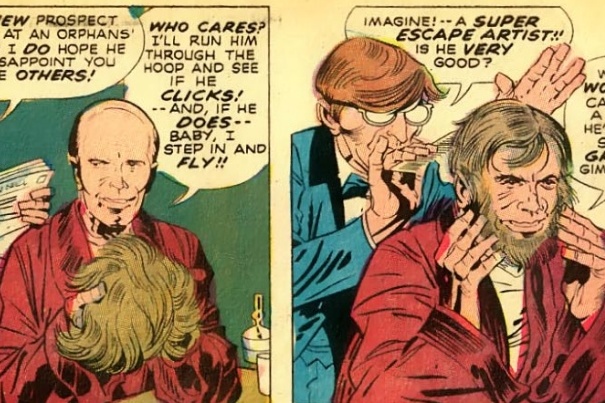
DC Comics
Creative talent has often jumped ship in both directions between Marvel and DC, but rarely under circumstances as controversial as Jack Kirby's defection.
The legendary artist left the House of M for DC in 1970 after becoming embroiled in a dispute with then editor Stan Lee. Chief among Kirby's gripes was the amount of credit Lee was given for the creation of iconic characters they had dreamed up together, including the Fantastic Four, the Incredible Hulk and the X-Men.
The illustrator took out his frustration on Marvel and Lee by brutally parodying them in a title he was working on for DC, Mister Miracle. In issue #6, he depicted Marvel as a former slave plantation run by a money-hungry villain called Funky Flashman, who bore an uncanny resemblance to his former collaborator.
Word has it that Lee was deeply hurt by Kirby's takedown. Not so much his portrayal as a manipulative bad guy, more the fact the artist poked fun at his toupeed appearance. Lee is said to have changed his image after this, shaving his beard off in a conscious effort to look less like Funky Flashman.
5. Blaming Each Other For A Collapsed Crossover
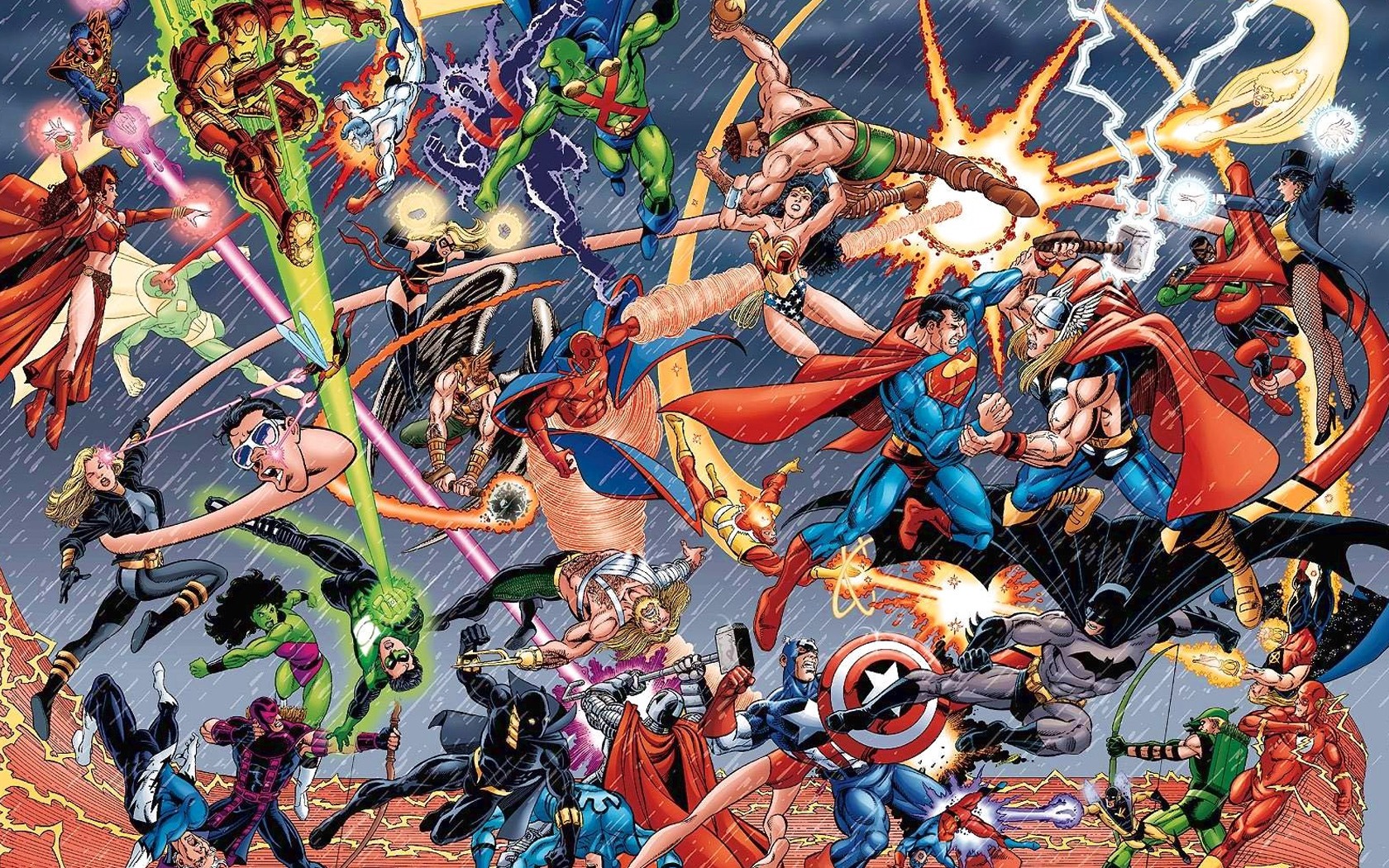
Marvel/DC
By the mid-1970s, Marvel and DC were on good terms and it was around then that the firms came together to answer a question the fans had long pondered: what would happen if the two publishers' most iconic heroes crossed paths with each other?
Superman and Spider-Man shared the page on two occasions and Batman briefly became frenemies with the Hulk, but plans for a crossover on a bigger scale were in the pipeline. In 1983, Marvel and DC were planning to releases a joint Avengers-Justice League comic book, and a creative team comprising artist George Perez and writers Gerry Conway and Roy Thomas was firmly in place.
Perez is said to have begun drawing the book two years earlier, but somewhere along the way, the plans came apart. Not only did the two publishers blame one another for the cancellation, they did so publically on the pages of their own comics.
Marvel editor-in-chief Jim Shooter put his side of the story across in Marvel Age #19, telling readers that DC sent him a story outline for the crossover which was "wasn't good enough" as it "didn't make sense". According to Shooter, DC repeatedly dragged its feet when he demanded a revised script, and often neglected to return his calls.
His DC counterpart Dick Giordano had his say via his 'Meanwhile...' column and put the blame squarely at Marvel's door, accusing Shooter of derailing the crossover by constantly stalling when it came to signing off on creative decisions.
All pre-arranged Marvel-DC crossovers - included a mooted second team-up between the New Teen Titans and the X-Men - were abruptly cancelled.
4. David Ayer's "F*** Marvel" Outburst
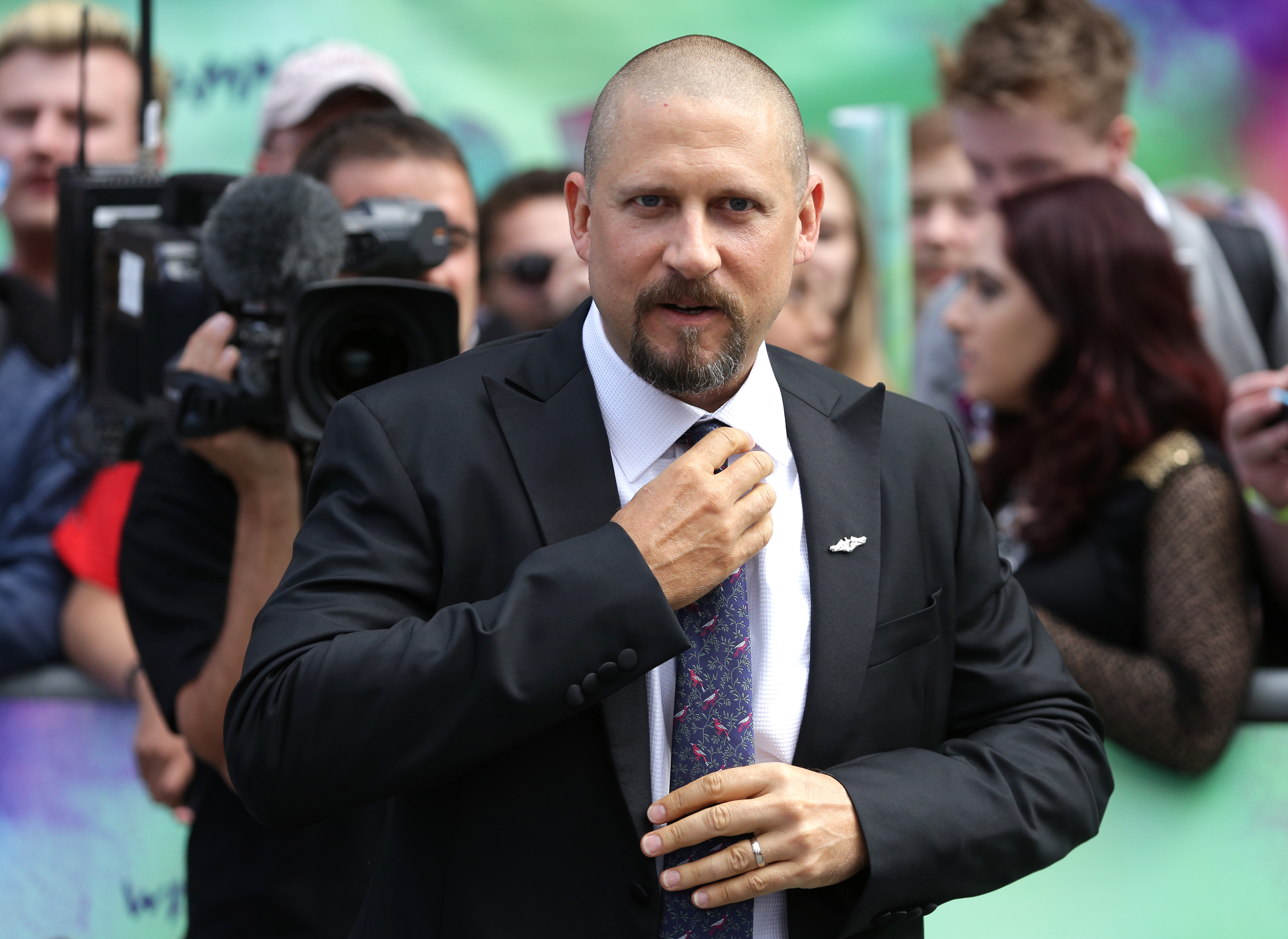
Daniel Leal-Olivas/PA Archive
These days, the battle lines between Marvel and DC have largely been erased and the top brass in both camps are full of mutual respect for each other, but Suicide Squad director David Ayer apparently didn't receive that memo.
During the bad guy-centric movie's New York City premiere, the filmmaker got carried away and bellowed "F**k Marvel," much to the amusement of the DC-loving crowd. Although this came across like a vicious attack on a rival studio, Ayer has since retracted the remark and apologised, admitting he was caught up in the moment.
He wrote on Twitter afterwards...
"Sorry about getting caught up in the moment and saying f**k Marvel. Someone said it. I echoed. Not cool. Respect for my brother filmmakers."
It wasn't one of Ayer's proudest moments, and it was made worse by the fact a fan recorded the whole thing and posted it onto social media, but the amount of time he spent in the Joker's company was bound to take its toll in some way.
3. Spying Allegations
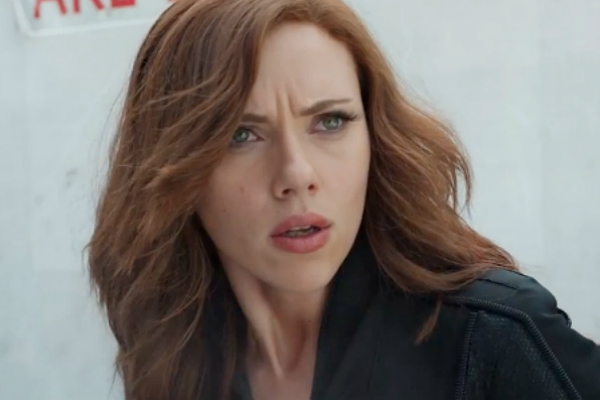
Marvel Studios
Marvel's 50-year battle with DC has been so compelling that somebody wrote a book about it. Author and journalist Reed Tucker's Slugfest takes a deep dive into the comic book rivalry and exposes a few closet skeletons along the way.
According to Tucker, both publishers have accused the other of spying at some point over the years, alleging that they've planted moles in the hope of uncovering secrets.
In 1971, DC is said to have learned that one of its employees was leaking information to Marvel, and in response launched a spying operation of its own. Tucker went into detail about this during an interview with Newsweek.
"The head of DC launched an honest-to-God counter-espionage operation, code-named Blockbuster, in which he created a fake memo about the company’s plans to publish gigantic 500-page comics. He then left it in his outbox. Sure enough, the spy took the bait, and soon there was talk over at Marvel of doing 500-page comics."
If DC really wanted to get its hands on Marvel's secrets so badly, as is claimed, perhaps they should have called on Batman writer Tom King, who spent seven years working as a CIA officer before establishing himself in the comics industry.
2. The Wonder Man Controversy
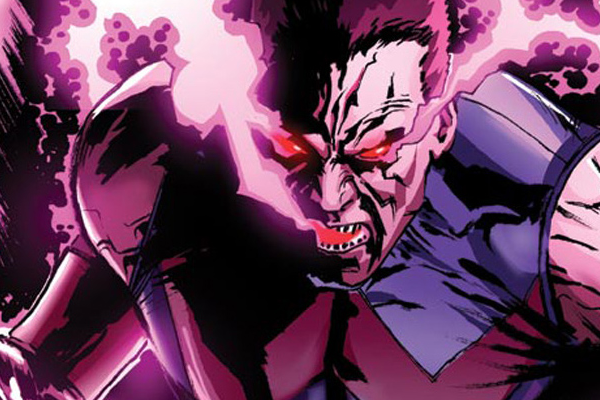
Marvel Comics
When their rivalry was at its bitterest, Marvel and DC found ways to undermine each other creatively. In 1964, for instance, the House of M introduced a character called Wonder Man, which ticked its competitor off for obvious reasons.
Although DC didn't go running to the courts citing clear similarities to a certain Amazon warrior on its books, the publisher is said to have held crunch talks with Stan Lee and asked him to discontinue the offending superhero.
Not wishing to rattle any more cages, Lee obliged and Wonder Man was killed off. Characters rarely stay dead in comics, but this one might have if DC hadn't unveiled Power Girl just a few short years after Marvel introduced Power Man.
The then-Marvel editor is said to have been incensed that DC pulled the very same stunt they'd reprimanded his firm for years early. In an act of payback, Lee gave the green light for Wonder Man to be resurrected.
1. The Black Panther Rotten Tomatoes Saga
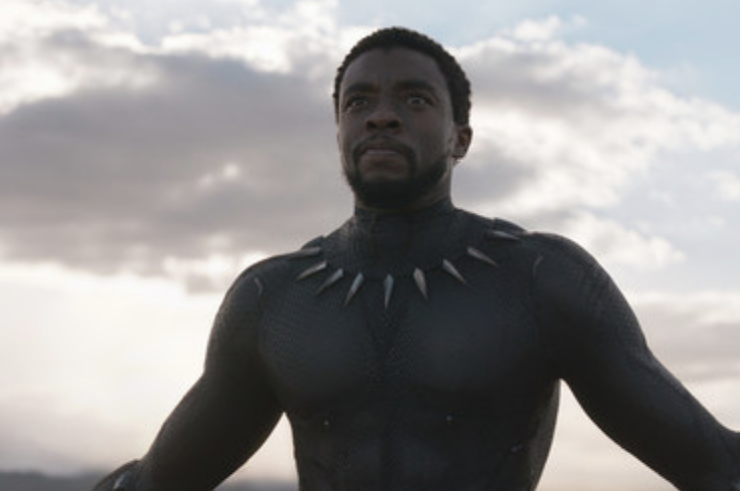
Marvel Studios
It was a sad state of affairs when reports of a DC fan campaign to vote down and sabotage Black Panther's Rotten Tomatoes audience score emerged, and an even sadder one when the truth behind these reports came to light.
Facebook moved quickly to shut down the anti-T'Challa page, but not before it sent a wave of outrage across the internet. DC fans looked bad and suddenly all the worst things about the brand's rivalry with Marvel were evoked.
In truth, most actual DC fans were just as outraged as everyone else and, days later, it was revealed that Rotten Tomatoes trolls - the same group which took aim at The Last Jedi and campaigned to have it removed from Star Wars canon - were behind the Facebook account, and DC fans were actually their target.
Although the hate campaign seemingly had nothing to do with DC or its supporters, 3,700 people declared their intention to participate in the sabotage attempt and another 1,800 were considering it. Taken at face value, those numbers did little to encourage unity between two fan bases who have a history of not seeing eye to eye.
Source: whatculture.com
 http://c.jumia.io/?a=55304&c=11&p=r&E=kkYNyk2M4sk%3d&ckmrdr=&utm_source=cake&utm_medium=affiliation&utm_campaign=55304&utm_termhttp://c.jumia.io/?a=55304&c=11&p=r&E=kkYNyk2M4sk%3d&ckmrdr=&utm_source=cake&utm_medium=affiliation&utm_campaign=55304&utm_term=
http://c.jumia.io/?a=55304&c=11&p=r&E=kkYNyk2M4sk%3d&ckmrdr=&utm_source=cake&utm_medium=affiliation&utm_campaign=55304&utm_termhttp://c.jumia.io/?a=55304&c=11&p=r&E=kkYNyk2M4sk%3d&ckmrdr=&utm_source=cake&utm_medium=affiliation&utm_campaign=55304&utm_term=








No comments:
Post a Comment